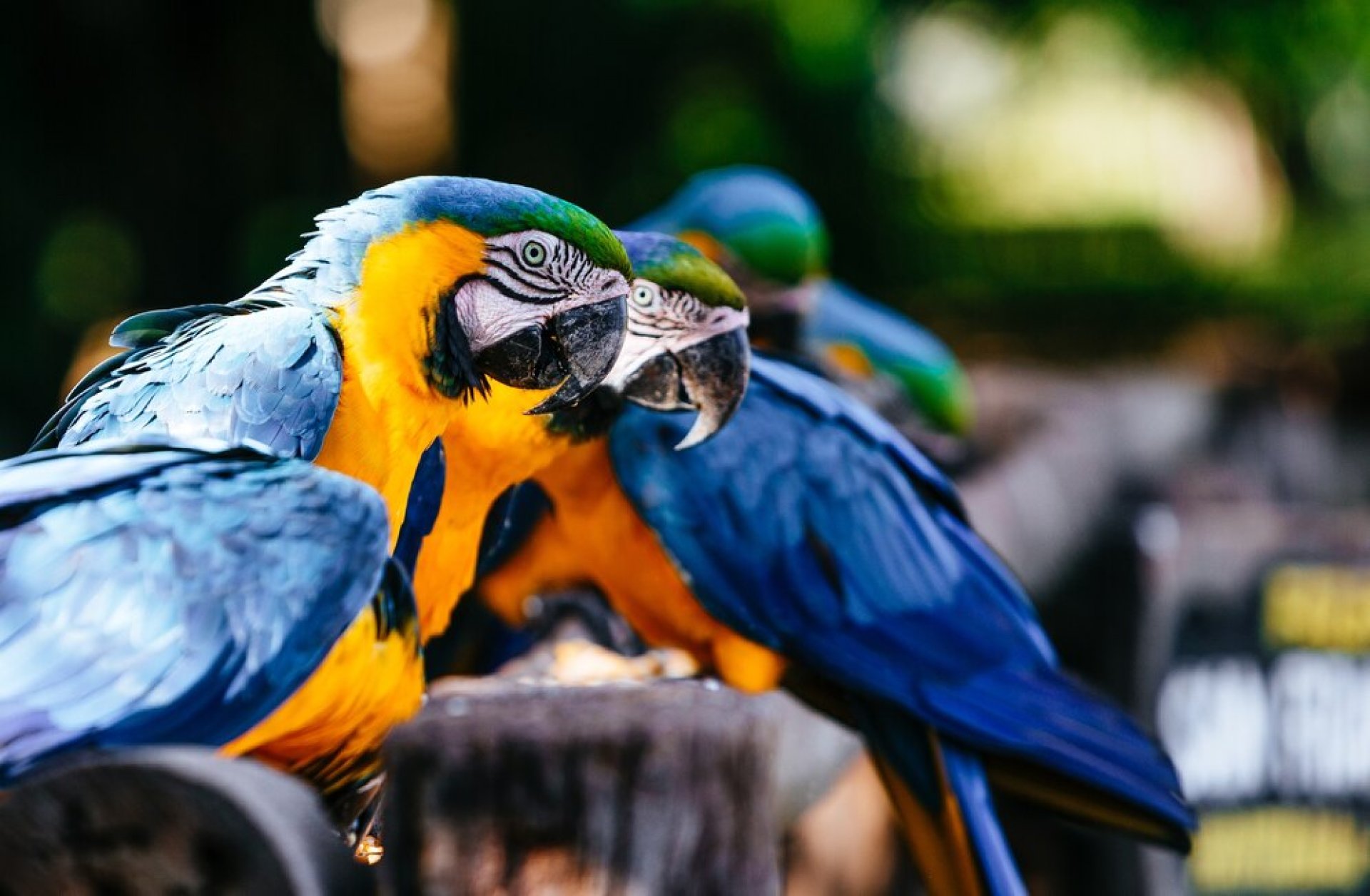How to care for a macaw

1. Housing
Macaws are large parrots that require a spacious environment to fly and move freely. It is recommended to use a large, sturdy cage or an open aviary with a strong metal structure, as macaws have powerful beaks that can damage weak cages. The cage should have multiple perches at different levels and mentally stimulating toys such as wooden ropes and puzzle toys. Place the cage in an area with moderate sunlight and good ventilation.
2. Suitable Diet
Macaws require a high-nutrition diet to maintain their health. Suitable foods include:
Seeds and nuts: Such as walnuts, almonds, peanuts, and sunflower seeds.
Fresh vegetables and fruits: Such as apples, carrots, broccoli, and mangoes.
Pelleted food for large parrots: Provides complete and balanced nutrition.
Supplements: Such as boiled eggs, hard-shelled nuts, and calcium to support bone health.
3. Health Care
Macaws should receive regular health check-ups from a veterinarian. Owners should observe any signs of abnormalities, such as lethargy, loss of appetite, or feather loss. Regular exercise and bathing are also important to maintain their well-being.
4. Bonding and Interaction
Macaws are highly intelligent and social birds that require daily interaction and training. They can be taught to speak or follow simple commands using positive reinforcement and rewards.
Additionally, it is recommended to let them out of their cage for 2-3 hours per day to exercise and explore their surroundings.


